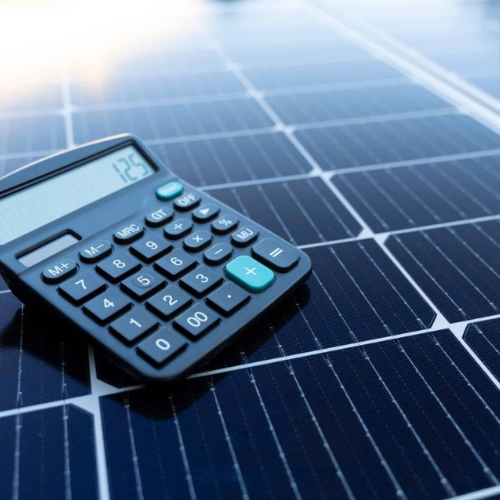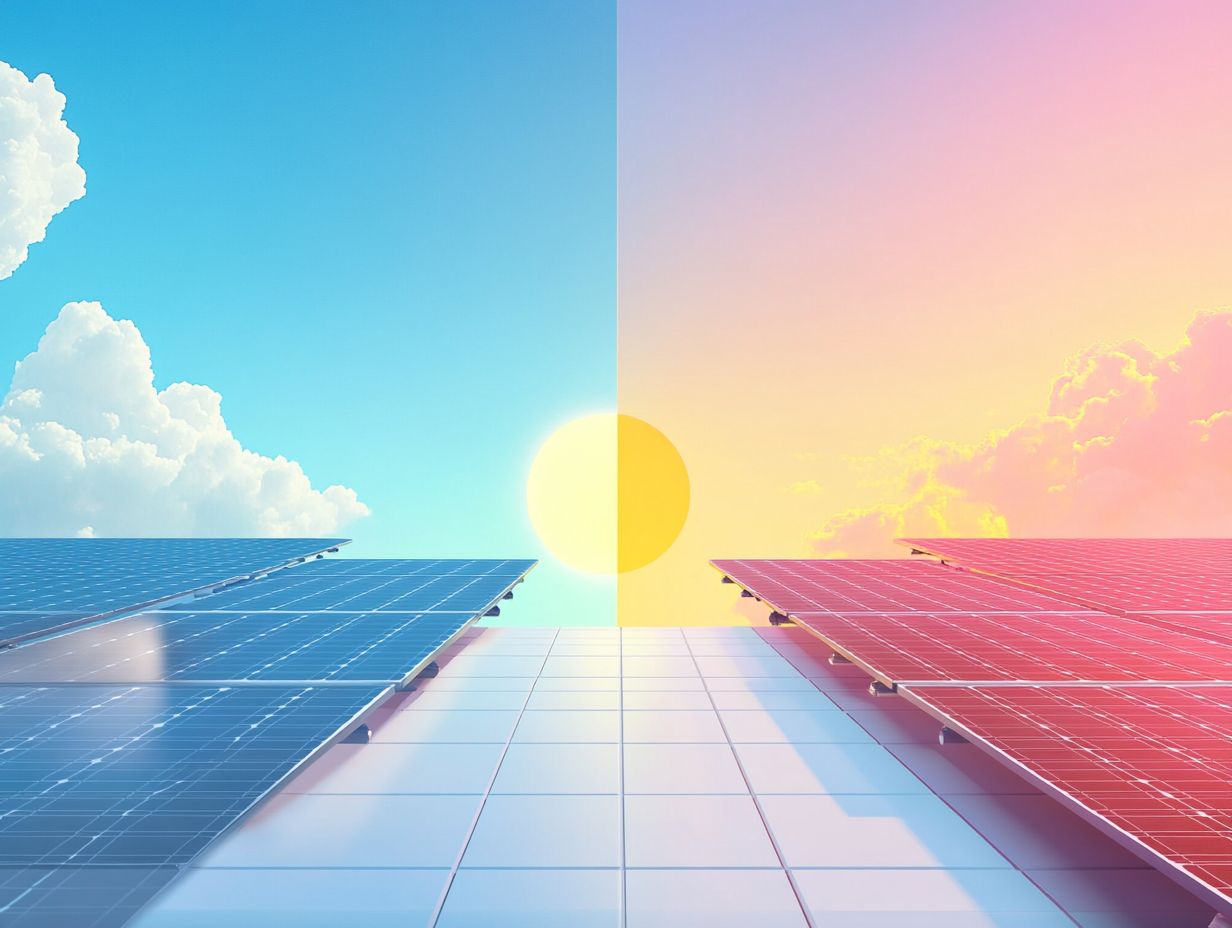Contents
- 1 Factors to Consider When Choosing Marine Solar Panels
- 2 The Best Marine Solar Panels for Durability and Longevity
- 3 Marine Solar Panels with High Efficiency and Power Output
- 4 The Top Marine Solar Panels for Compact and Space-Saving Designs
- 5 Marine Solar Panels with Advanced Technology and Features
- 6 How to Install and Maintain Marine Solar Panels for Maximum Energy Generation
- 7 The Future of Marine Solar Panels: Innovations and Developments
- 8 FAQs
As you embark on your journey into the world of marine solar panels, it’s essential to grasp the fundamental principles behind these innovative energy solutions. Marine solar panels are specifically designed to harness sunlight and convert it into usable electricity for boats, yachts, and other marine vessels. Unlike traditional solar panels, which may not withstand the harsh conditions of the open sea, marine solar panels are built with durability and efficiency in mind.
They are engineered to resist saltwater corrosion, high winds, and extreme temperatures, making them ideal for maritime environments. The appeal of marine solar panels lies not only in their resilience but also in their ability to provide a sustainable energy source. By utilizing solar energy, you can reduce your reliance on fossil fuels, lower your carbon footprint, and enjoy the freedom of being off-grid while at sea.
Whether you’re planning a weekend getaway or an extended voyage, integrating solar power into your marine setup can enhance your experience by ensuring you have a reliable power source for navigation, communication, and leisure activities. Get your free solar assessment here.
Key Takeaways
- Marine solar panels are an efficient way to generate energy on boats and yachts, providing a sustainable power source for various electrical systems.
- When choosing marine solar panels, factors to consider include durability, power output, efficiency, and space-saving design to ensure optimal performance in marine environments.
- The best marine solar panels for durability and longevity are made with high-quality materials, such as corrosion-resistant aluminum frames and tempered glass, to withstand harsh marine conditions.
- Marine solar panels with high efficiency and power output utilize advanced solar cell technology to maximize energy production, making them ideal for marine applications.
- The top marine solar panels for compact and space-saving designs are lightweight and flexible, allowing for easy installation on boats and yachts with limited space.
Factors to Consider When Choosing Marine Solar Panels
When selecting marine solar panels, several critical factors come into play that can significantly impact your decision. First and foremost, you should consider the size and power output of the panels. Depending on your energy needs, you may require a larger array of panels or a more compact solution.
Assessing your power consumption will help you determine how many panels you need to install to meet your requirements effectively. Another vital aspect to consider is the type of solar panel technology used. There are primarily two types: monocrystalline and polycrystalline panels.
Monocrystalline panels are known for their higher efficiency and space-saving design, making them an excellent choice for smaller vessels where space is at a premium. On the other hand, polycrystalline panels tend to be more affordable but may require more space for installation. Understanding these differences will help you make an informed choice that aligns with your specific needs and budget.
The Best Marine Solar Panels for Durability and Longevity

Durability is paramount when it comes to marine solar panels, as they must withstand the rigors of life at sea. One of the top contenders in this category is the Renogy 100 Watt 12 Volt Monocrystalline Solar Panel. This panel is designed with a corrosion-resistant aluminum frame and tempered glass, ensuring it can endure harsh marine conditions while maintaining optimal performance over time.
Its robust construction makes it a favorite among boaters who prioritize longevity in their solar solutions. Another excellent option is the SunPower Flexible Solar Panel. This panel is not only lightweight and easy to install but also boasts a high degree of flexibility, allowing it to conform to various surfaces on your vessel.
Its durable design ensures that it can withstand extreme weather conditions without compromising efficiency. By choosing panels like these, you can rest assured that your investment will last for years, providing reliable energy generation throughout your maritime adventures.
Marine Solar Panels with High Efficiency and Power Output
| Brand | Efficiency (%) | Power Output (W) |
|---|---|---|
| SunPower | 22.8 | 400 |
| Solaria | 20.5 | 380 |
| Lumos | 19.2 | 350 |
Efficiency is a crucial factor when selecting marine solar panels, as it directly impacts how much energy you can generate from available sunlight. The SunPower 110W Flexible Solar Panel stands out in this regard, offering one of the highest efficiency ratings in the market. With its advanced cell technology, this panel converts more sunlight into electricity than many competitors, making it an ideal choice for those who need maximum power output in limited space.
Another noteworthy option is the Canadian Solar 100W Monocrystalline Solar Panel. Known for its exceptional performance in low-light conditions, this panel ensures that you can generate power even on overcast days or during early morning and late afternoon hours. By investing in high-efficiency panels like these, you can optimize your energy generation capabilities and ensure that your vessel remains powered throughout your journey.
The Top Marine Solar Panels for Compact and Space-Saving Designs
For boaters with limited deck space, compact and space-saving designs are essential when choosing marine solar panels. The ALLPOWERS 100W Flexible Solar Panel is an excellent choice for those seeking a lightweight and flexible solution that can be easily installed on curved surfaces or tight spaces. Its slim profile allows it to blend seamlessly with your vessel’s design while still providing ample power output.
Another fantastic option is the Renogy 50 Watt 12 Volt Monocrystalline Solar Panel. This smaller panel is perfect for those who need a compact solution without sacrificing performance. It’s ideal for smaller boats or as part of a larger solar array on larger vessels.
By selecting compact designs like these, you can maximize your available space while still enjoying the benefits of solar energy.
Marine Solar Panels with Advanced Technology and Features

As technology continues to evolve, so do the features available in marine solar panels. One standout option is the Victron Energy SmartSolar MPPT Charge Controller, which pairs seamlessly with various solar panels to optimize energy generation. This advanced charge controller uses Maximum Power Point Tracking (MPPT) technology to ensure that your solar panels operate at peak efficiency, even in fluctuating weather conditions.
Additionally, some marine solar panels come equipped with built-in monitoring systems that allow you to track energy production in real-time. The Renogy 100W Monocrystalline Solar Panel with Bluetooth capability enables you to monitor your system’s performance through a smartphone app, providing valuable insights into your energy generation and consumption patterns. By choosing panels with advanced technology and features, you can enhance your overall solar experience and make informed decisions about your energy usage.
How to Install and Maintain Marine Solar Panels for Maximum Energy Generation
Installing marine solar panels requires careful planning and execution to ensure optimal performance. Begin by selecting a suitable location on your vessel that receives maximum sunlight exposure throughout the day. Ideally, this should be an area free from obstructions such as masts or sails that could cast shadows on the panels.
Once you’ve identified the best spot, follow the manufacturer’s installation guidelines closely to secure the panels properly. Maintenance is equally important in maximizing energy generation from your marine solar panels. Regularly inspect the panels for dirt, debris, or salt buildup that could hinder their efficiency.
Cleaning them with fresh water and a soft cloth will help maintain their performance over time. Additionally, check all electrical connections periodically to ensure they remain secure and free from corrosion. By taking these steps, you can ensure that your marine solar system operates at peak efficiency throughout its lifespan.
The Future of Marine Solar Panels: Innovations and Developments
The future of marine solar panels looks promising as innovations continue to emerge in this field. Researchers are exploring new materials and technologies that could further enhance efficiency and durability. For instance, advancements in perovskite solar cells show great potential for increasing energy conversion rates while reducing production costs.
As these technologies mature, they may revolutionize the way we harness solar energy on the water. Moreover, the integration of smart technology into marine solar systems is expected to grow significantly in the coming years. With features like remote monitoring and automated energy management systems becoming more prevalent, boaters will have greater control over their energy usage than ever before.
As these developments unfold, you can look forward to a future where marine solar panels not only provide sustainable energy but also enhance your overall boating experience through increased convenience and efficiency. In conclusion, understanding marine solar panels is essential for anyone looking to harness renewable energy while enjoying life at sea. By considering factors such as durability, efficiency, compact design, advanced technology, installation, maintenance, and future innovations, you can make informed decisions that align with your specific needs and preferences.
Embracing this sustainable energy solution will not only benefit you but also contribute positively to the environment as you navigate the waters ahead.
If you are interested in reducing your carbon footprint with solar energy, you may also want to consider investing in the best marine solar panels for your boat. These panels can help you harness the power of the sun while out on the water, reducing your reliance on fossil fuels and minimizing your impact on the environment. To learn more about the benefits of solar energy, check out this article on reducing carbon with solar.
FAQs
What are marine solar panels?
Marine solar panels are specially designed solar panels that are used on boats, yachts, and other marine vessels to harness solar energy and convert it into electricity to power onboard equipment and appliances.
What are the benefits of using marine solar panels?
Using marine solar panels can provide a reliable and renewable source of electricity for marine vessels, reducing the reliance on traditional fuel sources and lowering operating costs. They also help to reduce the environmental impact of marine vessels by decreasing emissions and reliance on fossil fuels.
What are the key features to consider when choosing the best marine solar panels?
When choosing the best marine solar panels, it is important to consider factors such as the panel’s efficiency, durability, size, weight, and resistance to harsh marine environments. Additionally, the ability to withstand saltwater exposure and high winds is crucial for marine solar panels.
How do marine solar panels work?
Marine solar panels work by capturing sunlight using photovoltaic cells, which convert the sunlight into direct current (DC) electricity. This electricity is then either stored in batteries for later use or converted into alternating current (AC) electricity using an inverter to power onboard equipment and appliances.
What are some popular brands of marine solar panels?
Some popular brands of marine solar panels include Renogy, SunPower, Go Power!, and Eco-Worthy. These brands offer a range of marine solar panels with different features and specifications to suit various marine applications.








